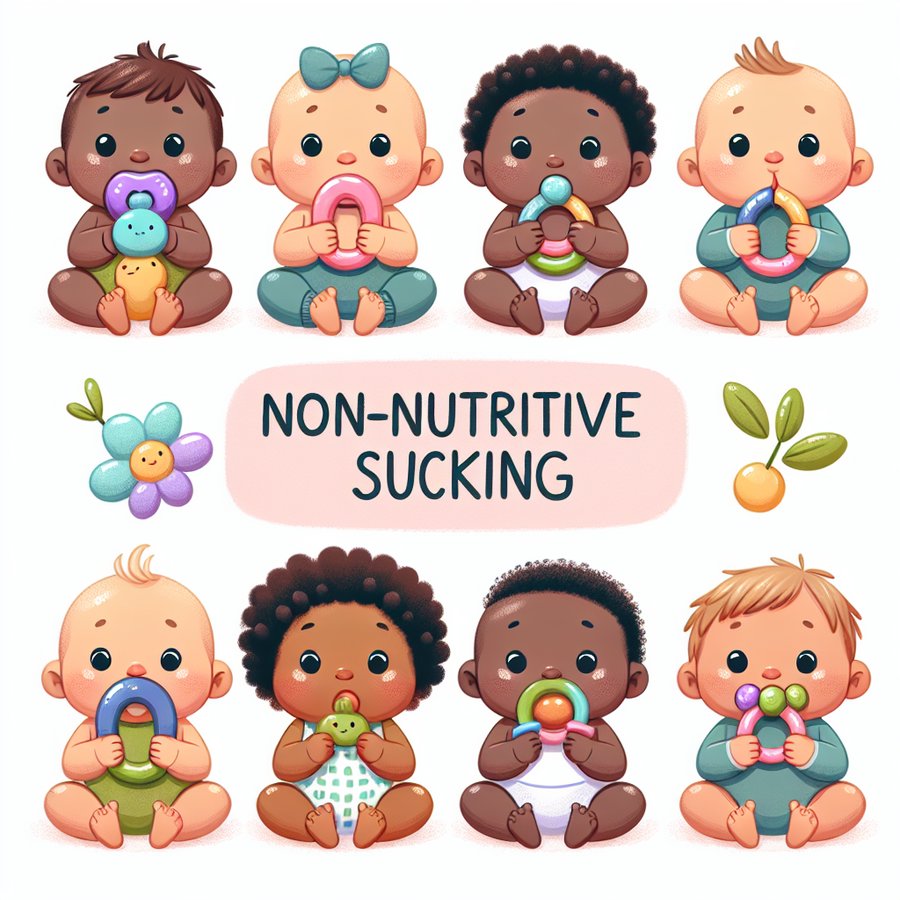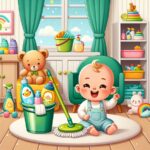Non-nutritive sucking is a natural reflex and a common behavior observed in infants, offering a plethora of benefits beyond simple nutrition. This soothing mechanism not only comforts your baby but also plays a vital role in their oral development and self-soothing capabilities. As new parents, understanding the nuances of non-nutritive sucking can empower you to better support your baby’s growth and emotional well-being.
What is Non-nutritive Sucking?
Non-nutritive sucking refers to the sucking actions babies make that do not result in nourishment. This can occur when a baby sucks on a pacifier, thumb, or other objects, and even during breastfeeding, when they suckle without drawing milk. This behavior is not only normal but beneficial, providing calming effects, aiding in digestion, and helping to develop muscles necessary for feeding and speech.
According to research, non-nutritive sucking has been linked to improved heart and respiratory rates, making it particularly valuable for premature infants who may struggle with these functions. For more detailed information on its benefits, ScienceDirect offers a range of studies highlighting the positive effects of non-nutritive sucking on infant development.
Benefits of Non-nutritive Sucking for Your Baby
The benefits of non-nutritive sucking extend far beyond simple comfort. It promotes emotional regulation, offering a natural way for infants to learn to soothe themselves during times of distress or tiredness. This self-soothing ability is crucial for emotional development and can lead to better sleep patterns and reduced crying.
Additionally, non-nutritive sucking supports oral development. The action of sucking strengthens the jaw, tongue, and palate, laying the foundation for healthy speech development and effective eating habits. It’s also been shown to reduce the risk of Sudden Infant Death Syndrome (SIDS), making it an important practice for parents to encourage.
How to Support Non-nutritive Sucking in Infants
Supporting your baby’s non-nutritive sucking involves understanding their cues and providing appropriate tools for them to suck on. Pacifiers can be a great aid, but it’s essential to introduce them correctly to avoid nipple confusion, especially if you are breastfeeding. Ensure the pacifier is clean and the right size for your baby’s age. Regularly check for wear and tear to prevent choking hazards.
In addition to pacifiers, you can encourage non-nutritive sucking by allowing your baby to suck on their fingers or a clean cloth. These methods can be particularly helpful during teething or when they need extra comfort. For babies with specific needs, such as those with nipple confusion or acid reflux, tailored strategies and consultations with a pediatrician can provide further guidance.
When to Seek Advice on Non-nutritive Sucking
While non-nutritive sucking is a healthy behavior for most infants, there are situations where you might seek professional advice. If your baby seems overly reliant on sucking for comfort, to the point where it interferes with feeding or causes oral health issues, consulting with a pediatrician can offer clarity and direction.
It’s also wise to consult a healthcare professional if you notice any changes in your baby’s sucking habits, especially if accompanied by signs of distress, difficulty breathing, or other health concerns. For specific conditions like anemia or asthma, which may impact your baby’s ability to suck effectively, specialized advice can ensure their needs are met safely and effectively.
In conclusion, non-nutritive sucking is a key aspect of infant development, providing numerous benefits from soothing comfort to aiding in oral and emotional development. By understanding and supporting this natural behavior, you can help foster a sense of security and well-being in your baby, laying a strong foundation for their growth and development. Remember, each baby is unique, and what works for one may not work for another. Stay attuned to your baby’s needs, and don’t hesitate to seek professional advice when necessary.













